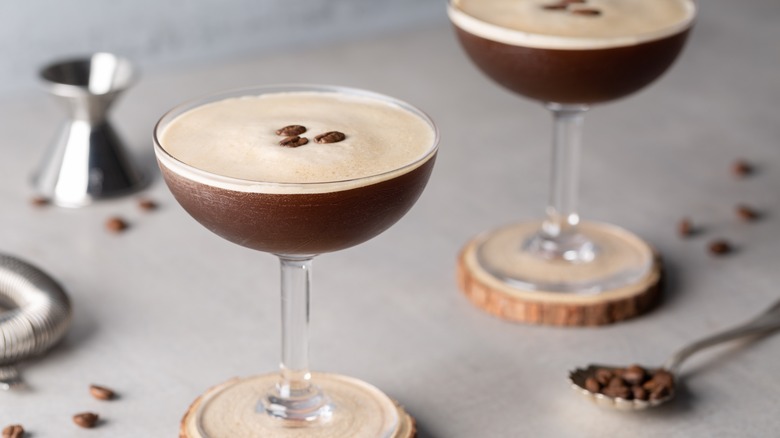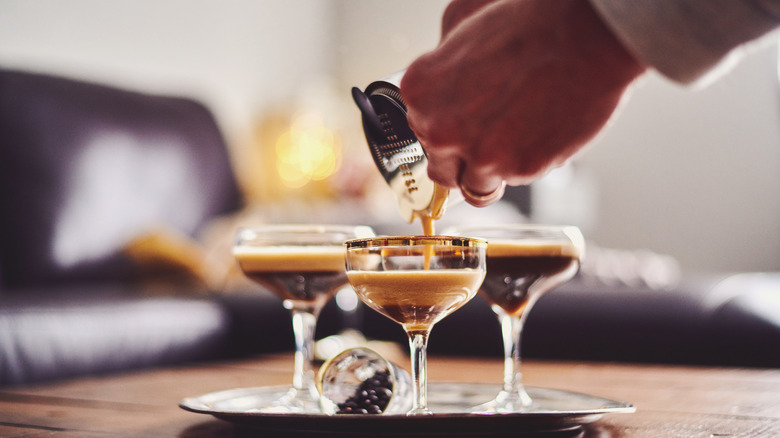An Expert's Advice On Using Cold Brew Vs Espresso In Your Cocktails
Coffee's rich and robust flavor coupled with the energizing and euphoric effects of caffeine make for better mornings and better cocktail hours. The best coffee cocktails have become mainstays for boozy brunches and have transformed coffee house baristas into bartenders. Cocktails and coffee drinks are a culinary art form, and coffee cocktails are cautiously proportioned for the perfect marriage of flavors to get you a fun balance between tipsy and jittery.
Not only do proportions matter, but the type of coffee is also an important factor in a well-mixed coffee cocktail. For a better understanding of the appropriate use of espresso, cold brew, and hot coffee, we spoke to Jessie Dolores, an expert mixologist and manager at Coffee + Cocktails in New York's Gansevoort Meatpacking hotel. According to Dolores, most coffee cocktails call for espresso because of its concentrated flavor and caffeine content. However, cold brew (not to be confused with iced coffee) is a worthy substitute in most cocktails because it has a similarly concentrated flavor. Dolores told us, "We can generally sub it with espresso without altering the flavor of the drink itself."
Cold brew is also an easy swap because it's already chilled, making its addition to cold cocktails even more seamless. Plus, cold brew requires no fancy machinery. With a smoother finish, less acidity, and less bitterness than espresso, cold brew can even allow the bite of alcohol to shine through.
Measuring strength with TDS
Jessie Dolores went into further detail on the key differences between cold brew, hot coffee, and espresso by explaining the science behind coffee strength. Coffee is a solution in which grounds steep, and their flavorful and caffeinated compounds dissolve into water. Coffee strength is thus measured by TDS, or total dissolved solids, with a higher percentage of coffee diffusion equating to a stronger cup of coffee. Dolores explains, "Generally, hot coffee is 1-1.5% TDS whereas espresso is 8-12% ... cold brew is slightly higher than hot coffee at around 2% but it's a super concentrated flavor."
So, how does cold brew achieve a taste comparable in strength to espresso? Perhaps the answer lies in the extraction method; cold brew steeps coffee grinds in cold water for anywhere between 12 to 24 hours, giving the soluble compounds more time to dissolve and concentrate into water.
You can use regular cold brew or cold brew concentrate (which has a higher ratio of grounds to water) in an easy one-to-one swap for espresso in a cocktail. The intensity of both cold brew and espresso along with their rich tasting notes act like cocktail bitters — they match the robust flavors of tequila, whiskey, and rum, while also embellishing milder spirits like vodka. Coffee, cream, and chocolate liqueurs (not to be confused with non-alcoholic chocolate liquor) add sweetness while also complementing the tasting notes of coffee.

